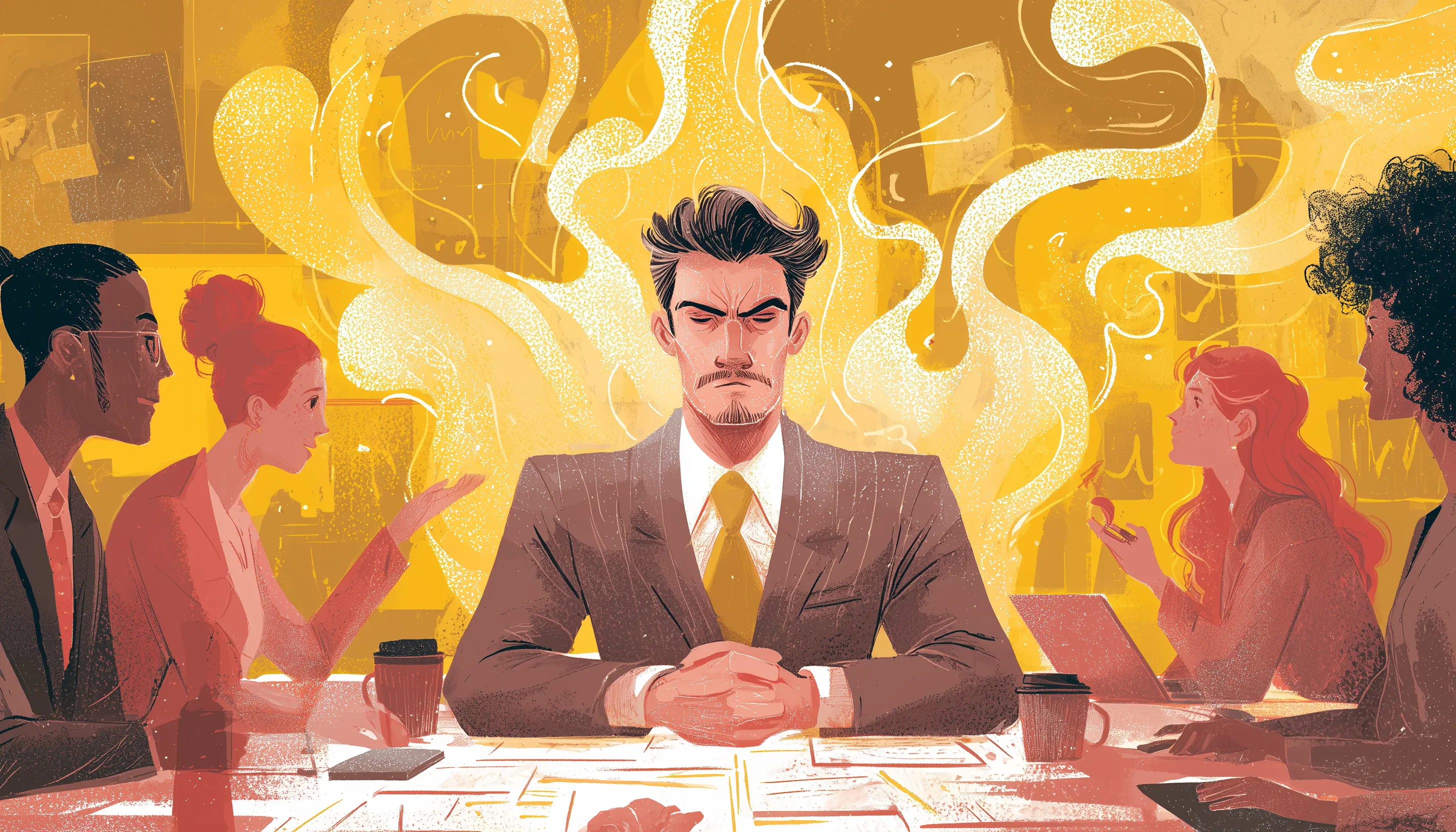Best Jobs and Careers for High and Low Neuroticism Personality Traits
There are pros and cons in the workplace for both sides of the Big Five Neuroticism personality type. Neuroticism is the most debated among the Big 5 traits. Some see it as a compliment, while others see it as a burden. Read on to unpack all these!


Back
4 mins read
Have you ever stayed up all night agonizing over a mundane detail of a project, even though everyone else says it’s perfect? Do your friends and loved ones frequently say, “you complain and worry too much?” Do you get easily frustrated with co-workers over little things?
Yes? Then you're likely wearing the neurotic badge of honor of the “crummiest” of the Big 5 personality traits.
But wait, it’s not all bad news!
While this personality trait is not explicitly "bad," it can affect your relationships and life. Like other Big 5 personality traits, neuroticism exists on a spectrum. Some people have high neuroticism, others have low neuroticism, while the rest fall somewhere in between.
Knowing and understanding the character of this personality trait will help you find ways to mitigate your responses to life stressors and improve your overall well-being.
Without further ado, let’s delve right in!
Big 5 Traits of Neuroticism: Career and Job Satisfaction

People with high neuroticism also have some positives, especially regarding their careers, though the negative usually overrides the positives.
An example of the traits of people with high neuroticism is that they're not good at focusing on one particular thing for long periods. This lack of focus may affect them in a career that demands intensive hours of concentration.
A person with high neuroticism could be indecisive due to feelings of anxiety and paranoia. Their emotions get the best of them. They may find it hard to work harmoniously with co-employees in a workplace.
On the positive side, people with high neuroticism don’t make hasty decisions and think a lot before taking the final step. This is valuable in a position that needs management and leadership.
Moreover, they tend to be realistic and self-aware. They don’t have a boastful attitude toward work. They’re always looking for drawbacks in situations, so they’ll cross-check all important information properly in projects with many risks.
High neuroticism allows people to be in touch with their emotions; therefore, they are capable of the empathy and sympathy necessary to build cohesion for teamwork.
Do you want to be sure of your potential career match? Take this easy career test to learn how you score on both Holland's interests and the Big Five personality types.
Jobs For People Who Score High In Neuroticism (Low In Emotional Stability)
Pursuing careers that complement your personality can improve your job performance and boost productivity. Once you understand your personality's technical strengths and weaknesses, you can mesh them with potential careers that match. According to Holland's theory, people align with or go to environments that match their personalities.
They would easily engage in activities using their abilities and values. As stated earlier, neurotic people tend to worry constantly; they can excel in careers with less pressure and anxiety. They can explore the negative feelings as an avenue for them to detect problems and solve them. Once they feel secure in a space that allows them the freedom to express themselves, they're excellent employees.
Some career choices for high neuroticism scorers are:
- Artist
- Writer
- Freelance Designer
- Accountant
- Yoga Instructor
- Florist
- Data Entry Specialist
- Dog Trainer
- Gardener
- Craftsperson
- Technical Editor
- Photographer
- Woodworker
- Sound Technician
- Massage Therapist
- Video Editor
- Illustrator
Each person has a different combination of personality traits; therefore, the degree of neuroticism and behavior differs.
Jobs For People Who Score Low In Neuroticism (High In Emotional Stability)
People with low neuroticism rarely experience negative feelings and react well to them. They're known to experience less stress and worry, allowing them to manage crises effectively. It's easy for them to thrive when their composed temperament is needed.
Potential job ideas for those who score low in neuroticism are:
- Social Worker
- Surgeon
- Diplomat
- Firefighter
- Police Officer
- Psychiatrist
- Lawyer
- Paramedic
- Military Officer
- Pilot
- Emergency Room Nurse
- News Anchor
- Corporate Executive
- Detective
- Sports Coach
- Entrepreneur
- Air Traffic Controller
Workplace Traits Of People High In Neuroticism
High neuroticism at the workplace is usually associated with poor stress resistance, inability to work effectively under pressure, and other negative aspects. However, there are also some benefits associated with high neuroticism. Let's take a look at the most common workplace traits people with high neuroticism have:
- Vigilance – They tend to anticipate problems before they arise. This hyper-awareness can be an asset in quality control, compliance, or roles requiring attention to detail.
- Self-Awareness – They are deeply reflective and constantly monitor their own performance, which can help them identify areas for improvement and growth.
- Perfectionism – Their desire to avoid criticism can drive them to produce highly detailed and accurate work, especially when given time and space to focus.
- Caution – They are less likely to take impulsive risks, making them reliable in roles that require careful judgment and risk management.
- Motivated by Structure – They tend to do well in environments with clear expectations and boundaries that offer psychological safety and reduce uncertainty.
Workplace Traits Of People Low In Neuroticism
People low in neuroticism tend to be calm, steady, and emotionally resilient. These traits make them reliable, even in high-pressure environments. Here are some common workplace strengths they bring:
- Emotional Stability – They stay calm under pressure, making them dependable in fast-paced or crisis-prone work settings.
- Resilience – They bounce back quickly from setbacks and help maintain team morale during difficult times.
- Composure – They rarely overreact and are often the voice of reason during conflict or change.
- Decision-Making Confidence – Their emotional steadiness supports sound, clear-headed decisions, even in complex scenarios.
- Consistency – They maintain steady performance, mood, and communication, making them ideal in leadership roles or jobs requiring long-term reliability.
How Do I Know If I Have the Big Five Neuroticism Personality Type?

Understanding your core personality will help you identify your values and find great ways to interact with others. Knowing what's good or bad about your personality can allow you to accept and then change what needs to be rooted out.
You may already have a sense of whether you're low or high on neuroticism, but taking an objective measure is the only sure way to determine your trait. BrainManager offers two Big Five personality type assessments — one that focuses on jobs and careers, and a more comprehensive one that focuses on your personality traits as a whole.
Both will help you to learn more about yourself and help you better understand your behaviors.


Return to Blog










